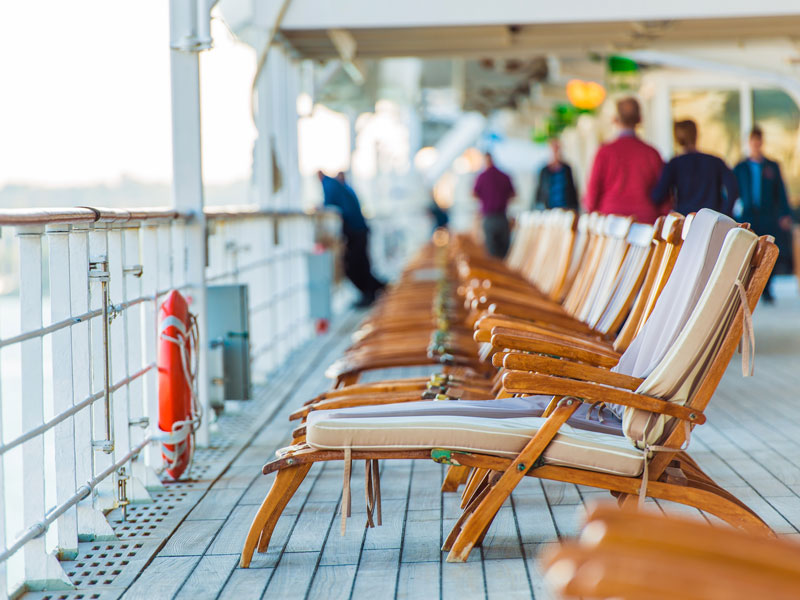Cruise Marketing: Attracting New Holidaymakers to Cruise

Cruise Marketing: Attracting New Holidaymakers to Cruise
The cruise industry is one of the fastest growing in travel, outpacing ‘general leisure travel in the U.S. by 22% between 2008 and 2014, according to the Cruise Lines International Association’s (CLIA) ‘2016 Industry Outlook’.
Indeed, impressive growth has been the status quo for the cruise industry for several years now; 24.2 million passengers are expected to board a CLIA affiliated cruise in 2016, compared with only 17.8 million back in 2009. In fact, in no year since at least 2009 has the cruise industry experienced a year-on-year drop in passenger numbers.
But the cruise industry is one full of paradoxes and pitfalls, especially when it comes to digital marketing. Below we discuss the need for cruise lines to adopt and implement strong digital marketing strategies, and how social media tactics can be used to drive bookings from new holidaymakers.
Considering Cruise
Speaking to Travel Agent Central ahead of this year’s Cruise360 Conference in Vancouver, Canada, president and CEO of CLIA, Cindy D’Aoust, highlighted the fact that most people haven’t even considered a cruise.
Alluding to one of the key challenges the cruise industry faces, D’Aoust said:
“We want to educate [those] people who haven’t gone cruising, don’t know how to book a cruise and haven’t thought about it…”.
This is a sentiment echoed by the president of Seabourne Cruise Line:
“We, as an industry, have to continue to convey the ‘value proposition.’ We need to continue to focus on individuals who have never taken a cruise vacation. It’s incumbent on us… to arm our trade partners with the best tools.”
And he’s right, it’s up to the cruise industry to continue to grow their business by communicating effectively with new audiences in the most effective way possible. That means ensuring that messaging is available where those customers are. In 2016, there’s no more appropriate common ground than digital marketing and, in particular, social media.
The Case for Social Media
Generally speaking, social media has never played a larger role in the decision making cycle of holidaymakers. It is not only a source of inspiration for 83% of holidaymakers using the internet for holiday research, it actively shapes holidays; 52% of travellers changed their travel plans based on social media.
“…it’s important not to fall into the trap of thinking that social media is a “young person’s” game.”
Even more compelling, however, is social media’s ability to target messaging directly to almost every demographic. In particular, it’s important not to fall into the trap of thinking that social media is a “young person’s” game.
Perhaps that used to be the case. But no longer. This year, in the UK alone, there will be 6.3 million social network users over the age of 54. Furthermore, the study conducted by Mailjet – and reported in eMarketer – found that an impressive ‘69% of UK internet users aged 55 and up had a Facebook account’.
It is the case, then, that social media can be used to target holidaymakers across demographics. Taking into account the benefits of specific platforms – Instagram and Snapchat for younger audiences – cruise lines and other travel industry sectors can use social media to target all ages. But the targeting ability of social media runs far deeper than that.
Targeting New Holidaymakers
Platforms like Facebook and Twitter offer some of the most sophisticated advertising options anywhere, digital or otherwise. Facebook, the clear industry leader, lets brands easily target any audience with key messaging. You can very quickly create a ‘custom audience’ using the Facebook advertising platform to target individuals based on age, gender and any number of interests and preferences.
Tying this back to the cruise industry, using Facebook or Instagram (they benefit from the same targeting options) it’s very easy to set up targeted advertising to reach anyone who has ever professed an interest in cruise. Furthermore, following deep-dive research set out by a digital marketing strategy, you can also target demographics based on the above criteria that have been earmarked as particularly receptive to cruise messaging.
But what’s perhaps more interesting is what you can achieve with any existing data – primarily email addresses – you may have. This information can be fed back into Facebook – safely, it is secured before use – to create a ‘lookalike audience’. This audience matches data with its associated profiles, and creates an expanded audience based on that information. This data can then be used to deliver key messages to targeted audiences, generating brand awareness, web visits and bookings.
Taking advertising sophistication one step further, Facebook now allows you to track website visits and activity via a tracking pixel (installed on your website). With this information, you can further target users based on the content they’re interested in and where they are in the buying cycle. And this level of targeting means that your audiences can very directly be nurtured into paying customers, providing your messaging is right.
Final Thoughts
Clearly, social media represents an opportunity for cruise – an industry looking to further cement compelling growth statistics dating back to 2009 at the latest. As highlighted by two key cruise industry professionals, attracting new holidaymakers to cruise is vital in achieving that growth. And simply re-engaging previous cruise adopters isn’t enough.
With so many travellers from every demographic using it as inspiration and a planning guide for their holidays, it’s abundantly clear that social is where travel and tourism customers and audiences increasingly congregate. New and existing targeting options on these platforms means that it’s simple and cost-effective to reach these groups with carefully considered messages defined by a robust digital strategy.
Quite simply, any cruise line not considering social media as a major part of their digital strategy is missing out on a sizeable corner of the market. And not just the young and tech-savvy, but the older core of traditional cruise holidaymakers.
Digital Visitor is the UK's leading strategic agency in travel, tourism & hospitality. For any more information on how we can help, get in touch.



%202-1.png)






